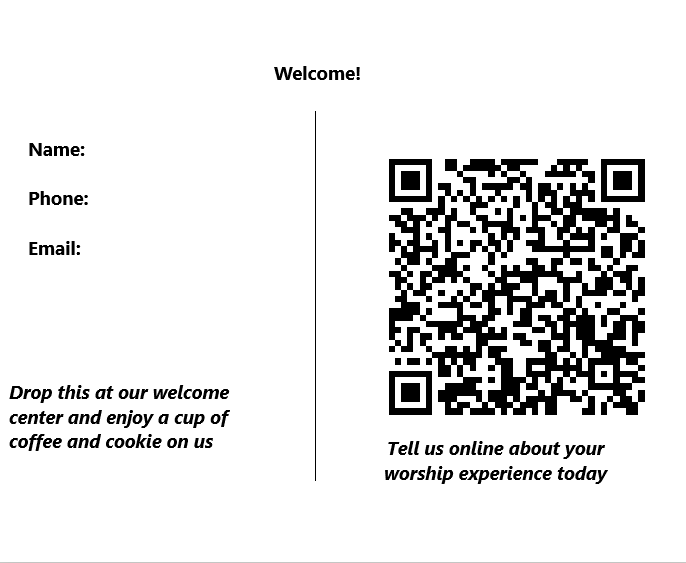It was Christmas Cantata Sunday. The congregation felt the energy of the choir and orchestra guests visiting from a local university. The choir stood on both sides of the church and launched the worship experience with rendition that would give Handel chills. As the pastor processed in to start the service, she didn’t see a shadow following her threatening to devour the benefits of the visiting musicians and choir.

What could possibly, with the orchestra, visiting musicians, choir turn the sanctuary into a “shark tank”? The truth -the pastor brought her own shark into worship experience. Her own attempt to prove that she does effective work as a pastor provided the fuel for her lack of her situational awareness that may shorten her tenure at the church. {Disclaimer: Today’s blog is a composite of experiences over the last twenty churches visited. This does not single out any one male, female or a particular church or denomination. It is a common problem.}
Following the the enraptured choir processional, the pastor that Sunday marched the isle with a full manuscript sermon, a children’s sermon, a notated sharing of prayer requests and pastoral readings through the cantata. After the congregation sat, the pastor rattled through a whole page of church announcements.
Tony Hughes, in his blog “Snatching Defeat from the Jaws of Victory” wrote, “So, how do sales people manage to snatch defeat from the jaws of victory after they’ve done so much good work to develop an opportunity and establish value? ”
How do pastors miss the cue? In the above worship service, the pastor failed to notice that the orchestra stopped smiling during the pastoral announcements. While the congregation appreciated the naming of Brother Smith’s upcoming hernia repair and the Sister Mary’s holiday depression, the orchestra sat stone-faced.
During the pastor’s children sermon to three children, the orchestra and visiting choir sat as silent observers. Pastor and her assistant spelled JOY out of candy canes then asked the children to explain what the letters meant. The kids answered, “Joy?”
“Yes!”, said the pastor, explaining that each child will receive a chocolate candy cane. Then pastor answered a child who asked, “Do these candy canes really taste like chocolate?” “Yes, they taste like chocolate.”
The pastor held a girl’s hand as she walked the child back to her pew. Upon arrival the girl did not want to be seated; so, the pastor shuffled the girl forward on isle to be seated with the pastor. Meanwhile, the choir and orchestra sat silent.
Finally, the announcements, children’s sermon and prayer requests over, the orchestra launched into a Christmas medley of classic hymns with the choir. On the front row, unseen by the pastor, the lead violinist smiled in the joy of worship. We waited so long in the service to see that smile.

Why do pastors lose their off switch?
The Apostle Paul wrote, “I have the right to do anything,” you say–but not everything is beneficial. “I have the right to do anything”–but not everything is constructive (I Cor 10:23 NIV).
Pastors have Not Learned the Art of Reading Their People
Pastors learn to read their sermon notes so they don’t get lost, but they’re not taught to read the congregation so the people are not lost.
Pastors learn to read their sermon notes so they don’t get lost, but they’re not taught to read the congregation so the people are not lost.
Let’s do a mini-survey. When you last attended church, did the pastor’s animated slide presentation (15 slides and a 12 Bible passages) stop when the point was made and the congregation was moved or did he plow on to the last slide? At that point the sermon turned dry as an overcooked Thanksgiving turkey.
This process of “covering the material” is the clergy version of “You can’t leave the table until the plate is empty.” This leaves everyone staring blankly and wondering when will it end? This is why in other blogs, I have been adverse to “fill-in-the-blank notes” as they guarantee attempts to “cover the material.” As. St. Paul said, “Not everything is beneficial.”
The next culprit – slide presentations lend themselves toward “material covering” sermons. If your goal is “material covering,” save it for your quilting ministry. Over the last half-dozen churches we visited, the pastors have quoted from ten to twelve different Bible passages as though quantity will prove that the pastor said something that stuck.
Pastors Lack the Directed Attention for Those Off Task
You may say, “Jim, I know I’ve been covering material. I don’t know what to do to engage my people. I can see their eyes glazing but what can I do?”
Bruce H. Wilkinson, Founder of Walk Thru the Bible Ministries, wrote the forward in Dr. Howard Hendricks’ “Teaching to Change Lives.” One day in seminary Bruce tested the master professor — he just stared out the window.

Dr. Hendricks, rather than just “covering the material”, walked out from behind the desk.
Wilkinson stared out the window.
Dr. Hendricks drew terrific charts and told jokes. Lots of jokes
Still Wilkinson stared out the window.
Finally, three minutes into this, Dr. Hendricks ran down the aisle and screamed, “Wilkinson! What on earth are you looking at?”
Wilkinson apologized but didn’t tell Dr. Hendricks about the “little experiment” until years later. I recommend “Teaching to Change Lives” as an excellent tool for pastors.
Secrets of Directed Attention
My wife, Carolyn, is a retired elementary principal of an excelling school and a former orchestra teacher. She said the master teachers know how to speak to the class while tapping their nails on the desk of a child who is “looking out the window” or opening the book of a student to the correct page while talking with the class about the subject. The master teacher directs attention through their awareness of each child in the room and that child’s needs.
Permission
Pastor Jim gives you permission starting this Sunday …
… Permission to end your sermon at the height of learning
… Permission to use only three of your fifteen Bible verses
… Permission to leave your people wanting more of God and of your message.
At the beginning of your service notes write, “Read the people.” Arrive early in the Sanctuary and begin reading by what the atmosphere is telling you. Is the air conditioning set right? New batteries in your microphone (because you know the old-timer at the sound booth likes to run batteries until they die – with your sermon)? Paper in the restrooms? Coffee urns full? Creamer and sweetener stocked?
In the mid-service, “Read the people.” Are they with you? Are you dragging every verse out of every hymn as though you are leading a funeral dirge?
Mid-sermon and in your notes write – “Read the People.” Plan an “impromptu moment” in every service in which you give God room to work rather than just your “covering the material.”
Pause before you begin your sermon … Read the people. Are they ready? Are you ready? Give a moment of silence before you launch.
Mid-sermon and in your notes write – “Read the People.” Plan an “impromptu moment” in every service in which you give God room to work rather than just your “covering the material.”
Think back to your childhood when you watched “Superman,” “Batman” or “Lost in Space”- episodes which all ended with cliffhangers … “To Be Continued!”
Take your people reading skills to the next level. At your welcome booth, give your church guests a two part perforated response card
Take your people reading skills to the next level. At your welcome booth, give your church guests a two-part perforated response card –

worship leaders.
“You know, I’m just vanilla … but remember … vanilla is the world’s favorite flavor!”
Dr. C.W. Brister, Christian Ministry Professor
Vanilla Extract
You may say, “Jim, is there hope for me and my teaching or preaching?” Looking back, I have made every misstep described above. I remember my first day in Christian Ministry class with Dr. C.W. Brister, Chair of Pastoral Ministry at SWBTS seminary. When I sat in a chair to the side and just behind the professor in the packed classroom, he asked me to move to a chair within his line of sight. Dr. Brister, gentle-spoken and slow-paced, said, “You know, I’m just vanilla … but remember … vanilla is the world’s favorite flavor!” A few weeks later as I walked late to attend chapel at max capacity, a most dynamic voice spoke over the narthex speakers. The voice coaxed and prodded the students, like a lifeguard tossing a life preserver. As I opened the door, to my surprise, as guest preacher that day stood Mr. Vanilla! Dr. Brister that day held each seminarian captive in his line of sight and let me know there was room even for me in God’s service.
Just Vanilla,
Pastor Jim
Hint: If you try the SurveyMonkey.com free version of a “Church Experience Feedback Survey,” turn multiple responses to “ON” and no limit to responses. Create a SurveyMonkey.com account and copy our “Church Experience Feedback Survey” questions to set up your own survey. Change your settings as described below. This will allow multiple responses from the same device – great for a kiosk.

